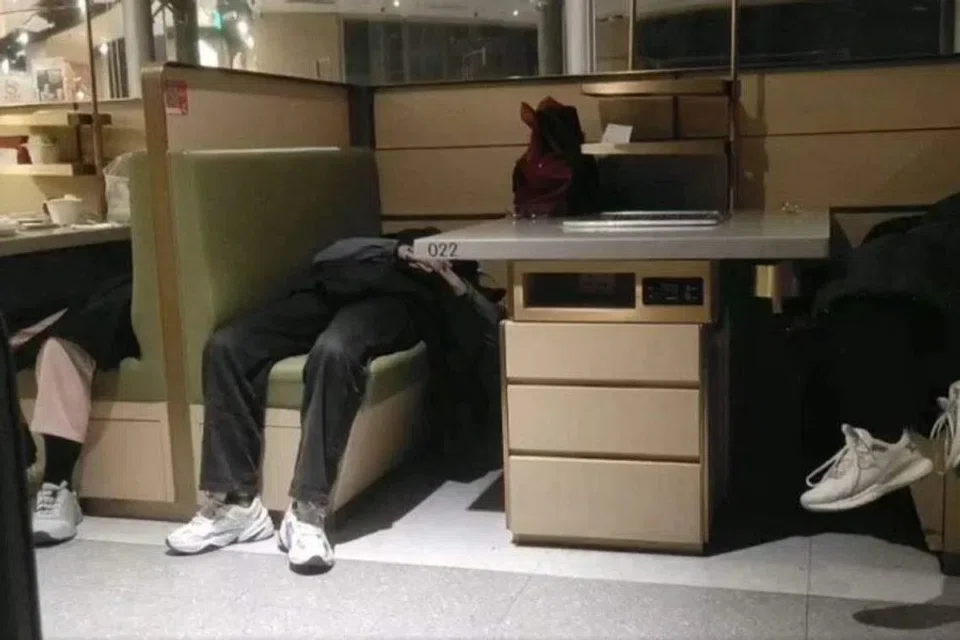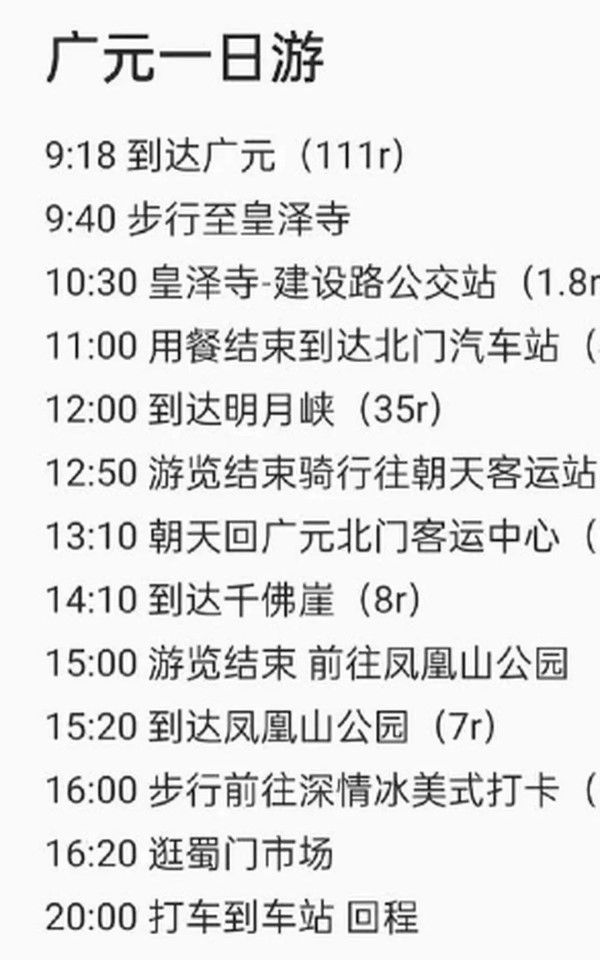Why China's young travellers are sleeping at Hai Di Lao
Chinese youths are jumping on the trend of "special forces" travel, spending as little as possible to cover as many locations in as short a time as possible, and spending nights in restaurants and trains instead of hotels and travel accommodations. But given the general lack of in-depth experiences and the negative effects of such superficial tourism, is it worth the effort? Or are young Chinese looking for an outlet for their pent-up energy and emotions?

Clocking two sleepless nights and 30,000 daily steps to cover more than ten locations in a single day - if one had no idea, this travel itinerary could easily be mistaken as some sort of special forces training.
The term "special forces travellers" (旅游特种兵) has gone viral on China's social media, referring to a travel style recently popular among young people whereby they try to spend the least amount of money to cover the most locations in the shortest time possible, challenging their physical limits like special forces troops.
Why are young people in China choosing to travel in this manner? Are they just following the crowd, or are there other reasons behind it?
'Military-style' tourism
On 24 March, a female student studying in Anhui province went to Beijing to meet her friend, and in just two days over the weekend, they managed to visit tourist attractions such as Nanluoguxiang, Drum Tower, Forbidden City, Yonghe Temple, Tiananmen Square, Summer Palace, Beihai Park and Temple of Heaven. To save time and money, the female student spent the night on the train on Friday, and the pair stayed up all night on Saturday to wait for the flag-raising ceremony at Tiananmen Square.

Images of the female student's travel itinerary drew the attention of netizens on Douyin. Netizens in Beijing said that they themselves had never been to so many places, and one even commented that "this is not tourism, it's an ironman triathlon".
... young people have shared on social media platforms like Xiaohongshu their experiences of sleeping in restaurants including Hai Di Lao and McDonald's...
There are many other young people like the female student, who go to the extreme in saving time and money. The astonishing itineraries and budgets they post online has earned them the moniker of "special forces travellers".

These "special forces" have many solutions to tackle the major cost of accommodation. Late last month, a woman touring Shenzhen wrote a post claiming that she stayed overnight in a private room for free at a Hai Di Lao hotpot restaurant. Many netizens questioned if she was abusing the restaurant's services, but in fact, young people have shared on social media platforms like Xiaohongshu their experiences of sleeping in restaurants including Hai Di Lao and McDonald's, while some also choose to spend the night in places like cheap bathhouses and internet cafes.
Some young travellers also choose to spend the night on the train, even selecting the cheapest hard seats instead of a sleeper berth. A netizen shared a scene on a night train from Zhengzhou to Xi'an, where almost all the passengers were college students on a weekend getaway.

Special forces travel has become a widespread phenomenon among young people in China. According to data from ly.com, during the recent Qingming Festival holiday, 62% of post-2000s generation travellers took overnight transportation to reach their destination, while 30% of this group visited more than four tourist spots in a single day. The most popular destinations are cities with a relatively high concentration of tourist attractions and convenient public transportation, such as Beijing, Chongqing, Changsha, Shanghai and Nanjing.
"I don't get what these people are playing at, do they just want a photo at the entrance?" - Chinese netizen
Superficial experience or a good use of time?
Netizens have mixed views on these special forces travellers. Some criticise such superficial travel as pointless. "If you're serious about it, the Palace Museum alone would take a few days. I don't get what these people are playing at, do they just want a photo at the entrance?"
Others note that after the "special forces" trend came up, human traffic at scenic spots and on transportation has significantly increased, affecting the travel experience of other tourists, while those who spend the night in restaurants and stations also leave a bad impression. Some are worried about these travellers' health: "Climbing Mount Tai after two sleepless days, what if something happens?"
However, some netizens believe that people shouldn't be too harsh on how young people choose to travel. "Youths are meant to spread their wings. What's wrong with going on a trip of a lifetime?"
"... my friend and I didn't feel tired, because the joy of going out and seeing the world conquered the fatigue."
The female student mentioned above who went to Beijing refuted the criticism of her superficial tourism in an interview with Ran News. She said, "Although the trip was rushed, we did a lot of research and took in the significance of each attraction. Many people say that 'special forces-style' travel is too tiring, but my friend and I didn't feel tired, because the joy of going out and seeing the world conquered the fatigue."

In response, some places have even launched travel packages to meet the needs of these young people. Shandong province has launched a Qilu high-speed rail tour package at 399 RMB (US$58), including routes connecting many scenic spots such as Baotu Spring, Mount Tai, Confucius Temple in Qufu, and the beaches in Qingdao.
Zibo city, which has recently become popular on social media for its barbecue food, launched a dedicated high-speed train for tourists to travel from Jinan to Zibo in as little as 40 minutes, to taste the city's specialty barbecue.
A need to see the world?
Youths travelling on a tight budget is commonplace, while affordable tours with packed itineraries are also a norm in the tourism industry. But special forces travel only became popular recently, for a variety of reasons.
... a trip that was supposed to be a memorable experience turned into a mission that must be completed in the shortest time, and even a form of social capital that could boost one's image.
Nowadays, Chinese youths heavily depend on social media for travel-related information, with bucket list destinations and food places garnering attention on platforms such as Xiaohongshu and Douyin. Many people only visit these places after looking at the photographs of others. They would take their own snaps and share them online, driving more people to do the same.
In this process, the emphasis is inevitably placed on "putting on a show" instead of truly "experiencing the journey". Hence, a trip that was supposed to be a memorable experience turned into a mission that must be completed in the shortest time, and even a form of social capital that could boost one's image.
However, not all special forces travellers are superficial, as the need to travel is real and far greater than ever before. During the three-year-long Covid-19 pandemic, China adopted prolonged stringent anti-Covid measures, with lockdowns and mass testing severely affecting people's movement, especially the younger generation who are passionate about seeing the world.
However, the reality is cruel - the world is big but their wallet is empty.

As a saying on the Chinese internet goes, "The pandemic took away three of the four years of university." During lockdowns, students couldn't even leave the school, let alone go for a trip. Thus, after the pandemic ended, youths were the most desperate to go on revenge trips to make up for their "lost youth".
On a tight budget
However, the reality is cruel - the world is big but their wallet is empty. Since the outbreak of the pandemic, China's consumer appetite for spending has weakened and more people are choosing to save rather than spend. Data released by the People's Bank of China showed that China's new RMB deposits in 2022 totalled 26.26 trillion RMB, an increase of 6.59 trillion RMB year-on-year.
The China Youth Daily reported that in 2021, a survey of 20,000 respondents showed that young people aged 18 to 34 are paying more attention to their retirement pension savings, with savings rates reaching a record high since 2018. Among them, 76% of youths said they were doing so to increase their emergency savings.
While it is normal for youths to travel on a tight budget, Chinese youths have additional time pressure when compared with their peers in developed countries who can use a gap year to do the same. Graduates in China are busy job hunting while undergraduates are taking examinations or finding internships during their school breaks.
Data from China's National Bureau of Statistics showed that in February this year, the surveyed urban unemployment rate reached 5.6%, among which unemployment among those aged 16 to 24 reached 18.1%. China's Ministry of Education said that a record 11.58 million students in China are expected to graduate from higher education institutions this year, an increase of 820,000 year-on-year.

Director of the China Institute for Employment Research Zeng Xiangquan told Caijing magazine that the issue with the supply and demand structure of the job market has not been resolved. In addition, students who delayed employment or failed to enter graduate school in 2022 or even 2021 are also set to enter the workforce, meaning that the employment pressure on Chinese college students will remain high this year.
Caught between ideals and reality
Chinese youths have a strong desire to travel but generally lack time and money. Therefore, it is unsurprising to see them pushing the limits to become special forces travellers, which reflects their yearning to find some harmony between ideals and reality. Refusing to give up on travelling and seeing the world, they are forced to spend every penny wisely.
This phenomenon also reflects the state of Chinese society after the pandemic - under immense economic pressure, even if people have become more willing to spend, their spending power may still be lagging behind. Will this lead to changes in various other sectors, besides tourism? This is something to observe in the near future.
This article was first published in Lianhe Zaobao as "中国年轻人为何要当"旅游特种兵"?".





![[Photos] Fact versus fiction: The portrayal of WWII anti-Japanese martyrs in Taiwan](https://cassette.sphdigital.com.sg/image/thinkchina/3494f8bd481870f7c65b881fd21a3fd733f573f23232376e39c532a2c7593cbc)